This article needs additional citations for verification .(April 2009) |
The Berlin Circle (German : die Berliner Gruppe) was a group that maintained logical empiricist views about philosophy.
This article needs additional citations for verification .(April 2009) |
The Berlin Circle (German : die Berliner Gruppe) was a group that maintained logical empiricist views about philosophy.
Berlin Circle was created in the late 1920s by Hans Reichenbach, Kurt Grelling and Walter Dubislav and composed of philosophers and scientists such as Carl Gustav Hempel, David Hilbert and Richard von Mises. Its original name was Die Gesellschaft für empirische Philosophie, which in English may be translated as "the society for empirical philosophy". Together with the Vienna Circle, they published the journal Erkenntnis ("Knowledge") edited by Rudolf Carnap and Reichenbach, and organized several congresses and colloquia concerning the philosophy of science, the first of which was held in Prague in 1929. [1]
The Berlin Circle had much in common with the Vienna Circle, but the philosophies of the circles differed on a few subjects, such as probability and conventionalism. Reichenbach insisted on calling his philosophy logical empiricism, to distinguish it from the logical positivism of the Vienna Circle. Few people today make the distinction, and the words are often used interchangeably.
Members of the Berlin Circle were particularly active in analyzing the philosophical and logical consequences of the advances in contemporary physics, especially the theory of relativity. Apart from that, they denied the soundness of metaphysics and traditional philosophy and asserted that many philosophical problems are indeed meaningless.
After the rise of Nazism, several of the group's members emigrated to other countries, including Reichenbach, who moved to Turkey in 1933 and later to the United States in 1938; Dubislav emigrated to Prague in 1936; Hempel moved to Belgium in 1934 and later to the United States in 1939; and Grelling was killed in a concentration camp. A younger member of the Berlin Circle or Berlin School to leave Germany was Olaf Helmer who joined the RAND Corporation and played an important role in the development of the Delphi method used for predicting future trends, and other early forms of social technology. [2]
After emigrating to various countries the group effectively came to an end, but not without influencing a wide range of philosophers of the 20th century, its method having been especially influential on analytic philosophy and futurology.

In philosophy, empiricism is a theory that states that knowledge comes only or primarily from sensory experience. It is one of several views of epistemology, along with rationalism and skepticism. Empiricism emphasizes the role of empirical evidence in the formation of ideas, rather than innate ideas or traditions. However, empiricists may argue that traditions arise due to relations of previous sensory experiences.

Logical positivism, later called logical empiricism, and both of which together are also known as neopositivism, was a movement in Western philosophy whose central thesis was the verification principle. This theory of knowledge asserted that only statements verifiable through direct observation or logical proof are meaningful in terms of conveying truth value, information or factual content. Starting in the late 1920s, groups of philosophers, scientists, and mathematicians formed the Berlin Circle and the Vienna Circle, which, in these two cities, would propound the ideas of logical positivism.

Rudolf Carnap was a German-language philosopher who was active in Europe before 1935 and in the United States thereafter. He was a major member of the Vienna Circle and an advocate of logical positivism. He is considered "one of the giants among twentieth-century philosophers."

Analytic philosophy is a branch and tradition of philosophy using analysis, popular in the Western world and particularly the Anglosphere, which began around the turn of the 20th century in the contemporary era in the United Kingdom, United States, Canada, Australia, New Zealand, Austria, Poland and Scandinavia, and continues today. There is, however, no clear distinction between continental and analytical philosophy.
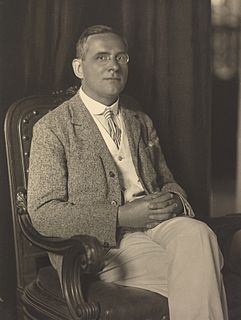
Friedrich Albert Moritz Schlick was a German philosopher, physicist, and the founding father of logical positivism and the Vienna Circle.
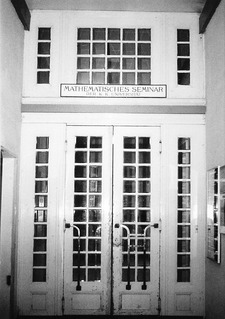
The Vienna Circle of Logical Empiricism was a group of philosophers and scientists drawn from the natural and social sciences, logic and mathematics who met regularly from 1924 to 1936 at the University of Vienna, chaired by Moritz Schlick. The Vienna Circle's influence on 20th-century philosophy, especially philosophy of science and analytic philosophy, is immense up to the present day.
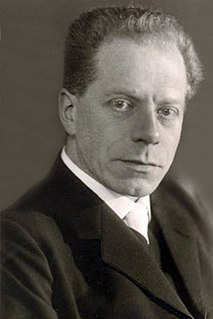
Leonard Nelson, sometimes spelt Leonhard, was a German mathematician, critical philosopher, and socialist. He was part of the neo-Friesian school of neo-Kantianism and a friend of the mathematician David Hilbert. He devised the Grelling–Nelson paradox in 1908 and the related idea of autological words with Kurt Grelling.
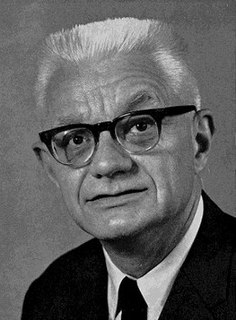
Carl Gustav "Peter" Hempel was a German writer, philosopher, logician, and epistemologist. He was a major figure in logical empiricism, a 20th-century movement in the philosophy of science. He is especially well known for his articulation of the deductive-nomological model of scientific explanation, which was considered the "standard model" of scientific explanation during the 1950s and 1960s. He is also known for the raven paradox.

Hans Reichenbach was a leading philosopher of science, educator, and proponent of logical empiricism. He was influential in the areas of science, education, and of logical empiricism. He founded the Gesellschaft für empirische Philosophie in Berlin in 1928, also known as the “Berlin Circle”. Carl Gustav Hempel, Richard von Mises, David Hilbert and Kurt Grelling all became members of the Berlin Circle.
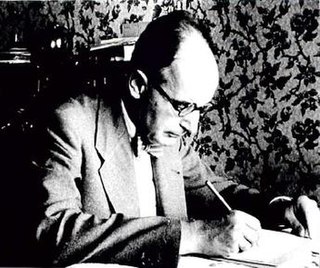
Kurt Grelling was a German logician and philosopher, member of the Berlin Circle.
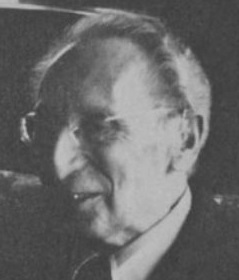
Herbert Feigl was an Austrian-American philosopher and an early member of the Vienna Circle. He coined the term "nomological danglers".
Verificationism, also known as the verification principle or the verifiability criterion of meaning, is the philosophical doctrine which maintains that only statements that are empirically verifiable are cognitively meaningful, or else they are truths of logic (tautologies).
Inductivism is the traditional and still commonplace philosophy of scientific method to develop scientific theories. Inductivism aims to neutrally observe a domain, infer laws from examined cases—hence, inductive reasoning—and thus objectively discover the sole naturally true theory of the observed.
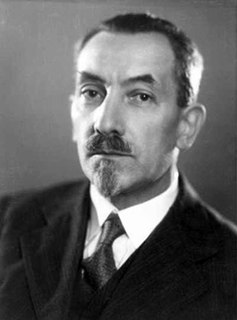
Victor Kraft was an Austrian philosopher, best known for being a member of the Vienna Circle.
Walter Dubislav was a German logician and philosopher of science (Wissenschaftstheoretiker).
This is a list of articles in analytic philosophy.

Friedrich Stadler is an Austrian historian and philosopher and professor for history and philosophy of science at the University of Vienna. He is the founder and long-time director of the Institute Vienna Circle, which was established as a Department of the Faculty of Philosophy and Education of the Vienna University in May 2011. Currently he is a permanent fellow of this Department and serves at the same time as the Director of the co-operating Vienna Circle Society, which is the continuation of the former Institute Vienna Circle as an extra-university institution.
Paul Oppenheim was a German chemist, philosopher, independent scholar and industrialist.

Janina Hosiasson-Lindenbaum was a Polish logician and philosopher. She published some twenty research papers along with translations into Polish of three books by Bertrand Russell. The main focus of her writings was on foundational problems related to probability, induction and confirmation. She is noted especially for authoring the first printed discussion of the Raven Paradox which she credits to Carl Hempel and the probabilistic solution she outlined to it. Shot by the Gestapo in 1942, she, like her husband Adolf Lindenbaum, and many other eminent representatives of Polish logic, shared the fate of millions of Jews murdered on Polish soil by the Nazis.
The Second Conference on the Epistemology of the Exact Sciences was held on 5–7 September 1930 in Königsberg, then located in East Prussia. It was at this conference that Kurt Gödel first presented his incompleteness theorems, though just "in an off-hand remark during a general discussion on the last day". The real first presentation took place in Vienna.